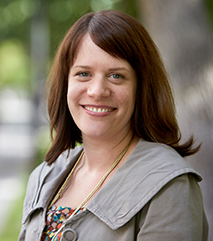Sara Gordon - Myths about Drug Use

Professor Sara Gordon spent this year continuing her research on drug and other specialty courts, which were originally intended to divert people with criminal charges out of the criminal justice system and allow them to instead receive treatment for an underlying mental illness or substance use disorder. But old ideas and myths about alcohol and substance use die hard, and many drug court participants do not receive appropriate treatment for their addiction.
One article, The Use and Abuse of Mutual Support Groups in Drug Courts, went to print in the Illinois Law Review. Another article, About a Revolution: Towards Integrated Treatment in Drug & Mental Health Courts, is forthcoming in the North Carolina Law Review. Both of these pieces examine the legal system’s attempt to deal with individuals with addiction, and the continuing lack of understanding that addiction is a brain disease, one with a biological basis similar to cancer or diabetes. As her work suggests, many people still believe that addiction is a type of character flaw or weakness, and this attitude is reflected in the types of addiction treatment we are willing to provide to people both within and outside of the justice system.
Myths in health care law are not limited to substance use. Prof. Gordon also presented her work on myths about fingerprints and other forensic identification methods. At the Judge Howard McKibben Inn of Court, she spoke to dozens of lawyers and judges about her work on forensic feature comparison methods and the reluctance of legal decision-makers to embrace challenges to their longstanding ideas or practices, even in the face of credible scientific evidence suggesting that the old approaches might be incorrect or misinformed.
Prof. Gordon is an Associate Professor at the UNLV Boyd School of Law and a charter member of the UNLV Health Law Program. She teaches courses in Mental Health Law, Criminal Law, and Evidence.